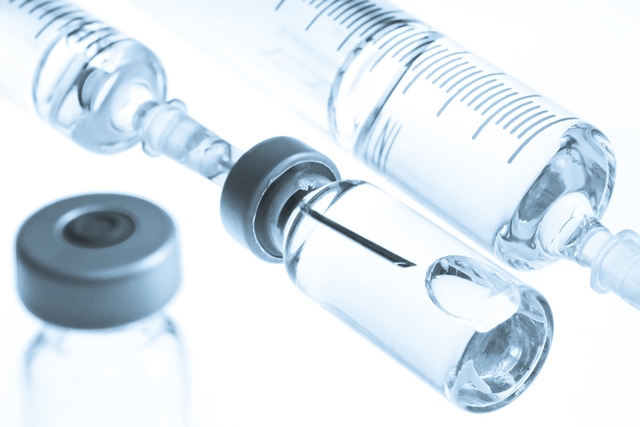The U.S. Food and Drug Administration (FDA) has approved Alvotech and Teva Pharmaceuticals’ SELARSDI (ustekinumab-aekn) injection for subcutaneous use, as a biosimilar to Stelara®, for the treatment of moderate to severe plaque psoriasis and for active psoriatic arthritis in adults and pediatric patients 6 years and older.
Under the strategic partnership between Teva and Alvotech, Teva is responsible for the exclusive commercialization of SELARSDI in the United States.
“The approval of SELARSDI – which is our second biosimilar approval this year – underscores Teva’s commitment to expanding the availability, access and uptake of this important treatment option to patients in the U.S.,” said Thomas Rainey, Senior Vice President, U.S. Market Access at Teva.
“The biosimilars market is growing, both globally and in the U.S., and biosimilars are a key component of delivering on Teva’s Pivot to Growth strategy. The partnership model that we’ve established enables us to leverage our commercial presence and experiences globally as we move to bring additional biosimilars to market.”
Robert Wessman, Chairman and CEO of Alvotech, added: “We are delighted to announce our second biosimilar approval in the U.S., which is the thirty-eighth approved market for our biosimilar to Stelara globally. Bringing SELARSDI to market in the U.S. early next year presents a significant opportunity to improve patient access to a vital biologic in inflammatory disease and contribute to the reduction of inflationary pressure in healthcare costs.
“The development of SELARSDI leveraged our purpose-built end-to-end development and manufacturing platform for biosimilars. Being able to develop the biosimilar in the same cell type and continuous perfusion process as was used for the reference product, facilitated the development program’s success.”
Ustekinumab is a human monoclonal antibody (mAb) that selectively targets the p40 protein, a component common to both interleukin (IL)-12 and IL-23 cytokines, which play crucial roles in treating immune-mediated diseases like psoriasis and psoriatic arthritis. Alvotech developed and produces SELARSDI using Sp2/0 cells and a continuous perfusion process, which are the same type of host cell line and process used in the production of Stelara.
Sales of the reference product Stelara in the U.S. were nearly $7 billion in 2023. The availability of a Stelara biosimilar will create opportunities for cost savings across the healthcare system and introduce additional treatment options for patients. In the U.S., plaque psoriasis is the most common form of psoriasis while psoriatic arthritis accounts for approximately six percent of all cases of juvenile arthritis.
In June 2023, Alvotech and Teva announced that they had reached a settlement and license agreement with the manufacturer of the reference biologic, Johnson & Johnson, granting a license entry date for SELARSDI in the United States no later than February 21, 2025.
In August 2020, Alvotech and Teva entered into a strategic partnership for the exclusive commercialization of five of Alvotech’s biosimilar product candidates, and in August 2023, the collaboration was extended to include two additional biosimilars and new presentations of two previously partnered products.
Alvotech handles development and manufacturing, while Teva is responsible for the exclusive commercialization in the U.S., which leverages Teva’s experience and extensive sales and marketing infrastructure. SELARSDI is the second biosimilar approved under the strategic partnership: in February 2024, the FDA approved SIMLANDI®, the first high-concentration, citrate-free biosimilar to Humira that has been granted an interchangeability status by the FDA.
The FDA approval of SELARSDI, referred to as AVT04 during development, was based on a totality of evidence, including analytical and clinical data. The clinical development program included data from: 1) Study AVT04-GL-301, a randomized, double blind, multicenter, 52-week study to demonstrate equivalent efficacy and to compare safety and immunogenicity between SELARSDI and the reference product Stelara in patients with moderate to severe chronic plaque-type psoriasis. The study was conducted in four countries in Europe and enrolled 581 patients. The primary efficacy endpoint was Psoriasis Area and Severity Index (PASI) percent improvement from Baseline to Week 12; 2) Study AVT04-GL-101, a Phase I, randomized, double-blind, single-dose, parallel-group, 3-arm study to compare the pharmacokinetic, safety, tolerability, and immunogenicity profiles of SELARSDI, administered as a single 45mg/0.5mL subcutaneous injection with that of the US-licensed Stelara as well as EU-approved Stelara. The study was conducted in Australia and New Zealand and enrolled 294 healthy adult volunteers.


